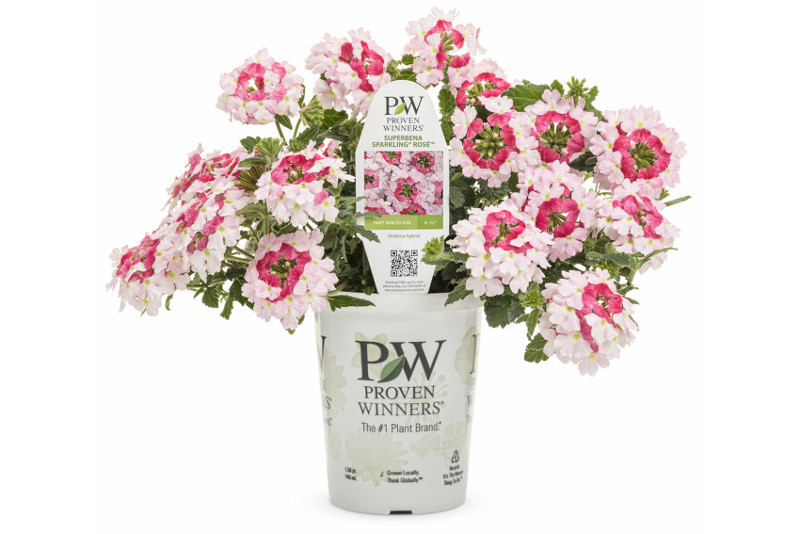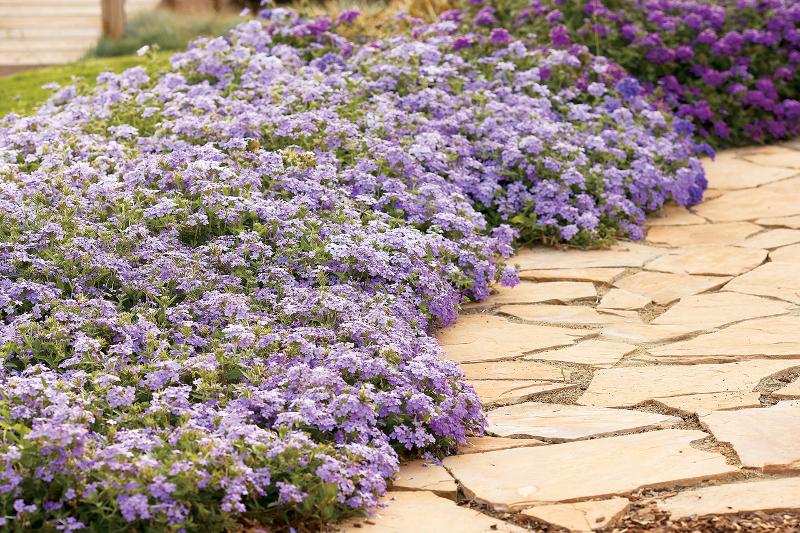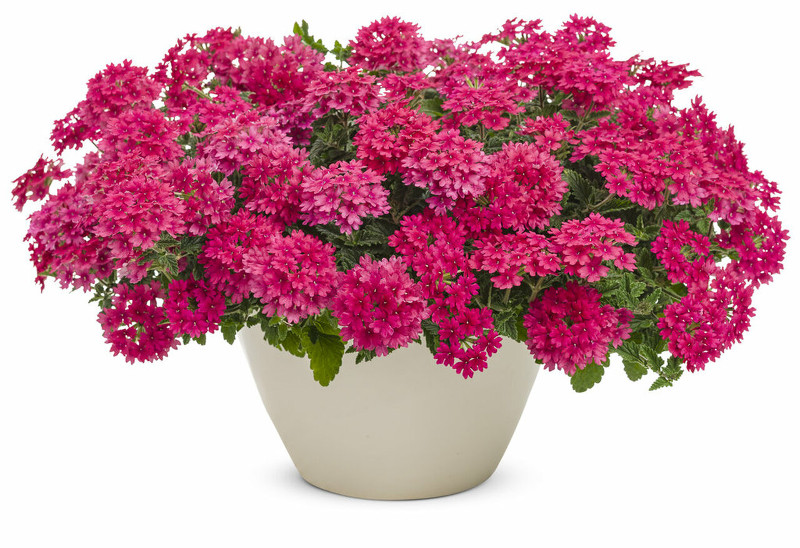Verbena goes by many names, including vervain or verveine, as well as enchanter's plant, holy herb, Juno's tears, mosquito plant, pigeon's grass, pigeon weed, simpler's joy, wild hyssop, and more. Whatever you call this low-maintenance flowering plant, you will be sure to enjoy the clusters of brightly-hued flowers that add a burst of color to garden beds, planters, and hanging baskets.
Verbenas do well in USDA growing zones 5 and up, and as long as they receive plenty of light, they generally need very little care. Find out how to plant Verbena to enjoy healthy plants all summer long.

What You Need To Plant Verbena
- Shovel
- Compost or manure
- Garden spade
- Water source
Where to Plant Verbena
Verbenas grow somewhat quickly, so they need a sunny spot to help them thrive and push out lots of vibrantly colored flowers. If grown in partial or full shade, the plants will grow very slowly and may not bloom much. Verbena grown in low light are prone to powdery mildew, so finding a sunny spot helps the plant flower and protects against potential problems.
Upright Verbenas do well at the back of flower beds, so they will not block other plants when they get some height to them. Trailing varieties are better suited to the front of garden beds, containers, or hanging baskets.
Well-draining soil is necessary to grow healthy Verbenas. This plant has somewhat low water needs, so the soil needs to allow water to drain away. When planting Verbena, position the plant, so the top of the root ball is even with the top of the soil. Verbena do very well in containers and hanging baskets, so you can move them around to find the ideal spot, but generally, an area with lots of bright sunlight will be best.
Verbena Spacing
All Verbena varieties should be spaced 12 inches apart. Young plants will quickly fill in, and they need space to spread out. Upright Verbena will spread about 3 feet while trailing Verbena can claim 3 to 6 feet of space, making them an excellent ground cover. Spacing is crucial because Verbenas are susceptible to powdery mildew, and room for air to circulate can reduce the likelihood of mildew becoming an issue.

Steps To Plant Verbena
When planting Verbena, select a sunny area and dig a hole a few inches larger than the root ball. Mix manure or compost into the soil to feed the plant and help encourage growth. Newly planted Verbena will need water daily for the first couple of weeks.
Step 1 - Pick a good spot
Step 2 - Dig a hole
Step 3 - Amend the soil with manure or compost
Step 4 - Position the root ball, so it is even with the ground
Step 5 - Backfill the hole with dirt
Step 6 - Water thoroughly for the first 1 to 2 weeks
When to Plant Verbena
You can plant verbena outdoors after there is no longer a threat of frost and the temperature is consistently warm. Established Verbenas like lots of sun and heat, but try to give newly planted Verbena a break and plant later in the afternoon, after the heat of the day has subsided. If you plant Verbena early, then make sure to give the plant lots of water, so it will not dry out as the temperature climbs.
Transplanting Verbena
Some varieties of Verbena are annuals, while others are perennials. As annuals, the plants grow for one season, so splitting is not usually necessary. When it comes to splitting perennial Verbenas, spring is the best time. You can take cuttings from perennial varieties to root during the late summer. Verbena plants can be water or soil propagated.

The plants may self-seed, meaning that the seeds from last year’s Verbena may fall into a garden bed, hunker down over the winter, and germinate the following spring. If your Verbena self-seeds, you can move the young plant in the spring and transplant it to another bed or container. When moving a Verbena plant, amend the soil in the new bed or planter with organic material to help the plant settle into its new space.
 |
Author Alison Cotsonas - Published 12-13-2021 |


